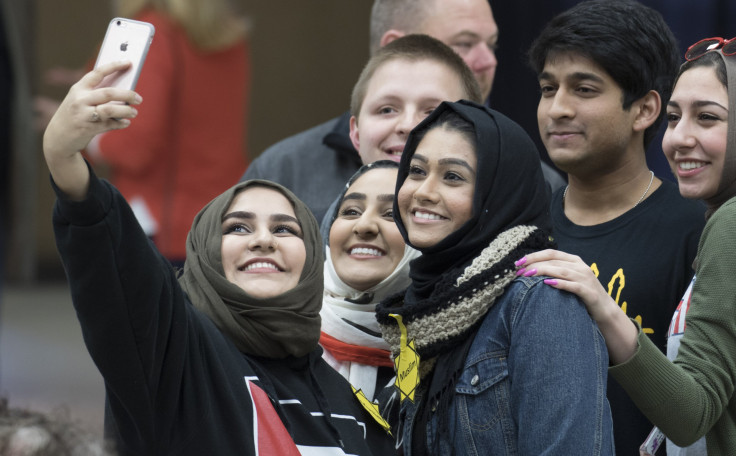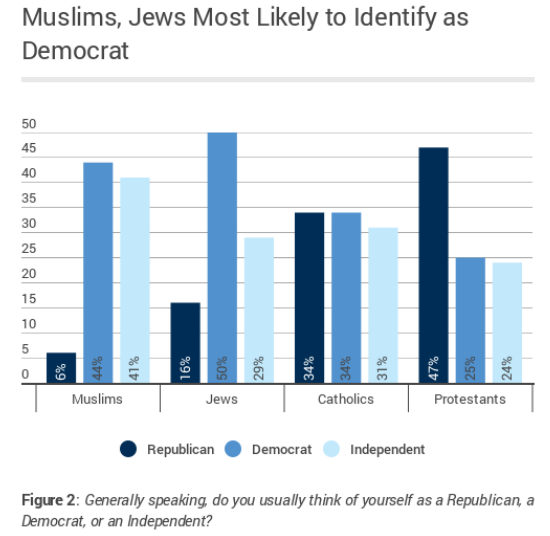Survey Of American Muslims Indicates That Muslims Are Patriotic, But Also Less Likely To Vote Than Other Religious Groups

American Muslims have been thrust into the spotlight in this election cycle: Leading Republican presidential candidate Donald Trump has called on temporarily banning the entrance of Muslims into the country and has even suggested that mosques in the United States should be shut down. But little discussion has focused on what American Muslims actually believe.
A survey released Tuesday by the Institute of Social Policy and Understanding (ISPU), a nonpartisan think tank that focuses on research and analysis of Muslim communities around the world, aims to highlight the attitudes of American Muslims on various issues ranging from politics, religion, violence and identity. Jews, Catholics and Protestants were also polled. The findings paint a comprehensive picture of American Muslims and their social beliefs, offering an important look at a community that is currently the subject of much scrutiny and debate.
“In this election cycle, specifically, Muslims have been a topic of debate but seldom participants in that discussion,” said Dalia Mogahed, the research director at ISPU.
According to the survey, Muslims in the United States are the faith group least likely to be engaged in the political process. But Muslims are as likely as other religious groups in the U.S. to be otherwise involved in their communities.
Sixty percent of Muslims who said they could legally vote in the U.S. were registered to do so, lagging behind 86 percent of Jews, Catholics and Protestants. But of those who were registered, 85 percent said they planned on casting votes in the upcoming presidential election. And Muslims were as likely (38 percent) as Jews (40 percent) and Catholics (42 percent) to work with people in their neighborhoods to solve community problems.
When they do vote, Muslims lean toward Democratic candidates — 44 percent said they favor Democrats, while only 6 percent said they favored Republicans. But a large group, 41 percent, said they identify as independents.

The findings on American Muslims and their voting patterns are somewhat consistent with a 2011 survey conducted by the Pew Research Center, which found that 66 percent of American Muslims were registered to vote. But in 2011, 70 percent of the American Muslims surveyed by Pew identified as Democrats, while 19 percent said they were Republicans and 11 percent considered themselves independent.
Another key finding of the survey: Muslims who identified strongly with their religion were more likely to be patriotic than those who didn’t. Ninety-one percent of Muslims who said their faith was important to their identity also said being American is important to how they think of themselves, while only 68 percent of those who expressed a weak Muslim religious identity said the same. That finding flies in the face of the assumption that religiosity in Muslims is at odds with an American identity.
“Islam doesn’t weaken Muslim patriotism, it actually strengthens it,” said Mogahed.
The ISPU survey was commissioned by two outside firms that contacted 515 Muslim respondents and 312 Jewish respondents by phone in January. Another survey was conducted of the general public in order to offer comparison data.
© Copyright IBTimes 2024. All rights reserved.





















